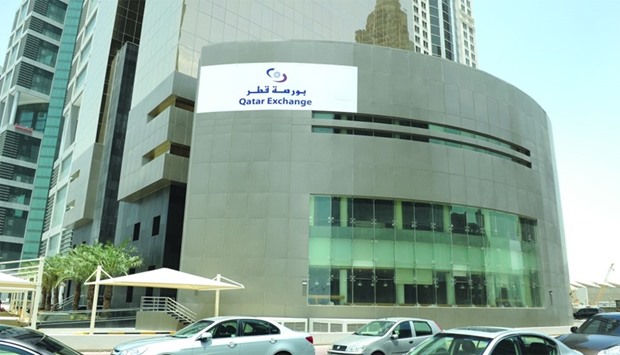The Qatar Stock Exchange's (QSE) call for mandatory ESG (environment social and governance) regime is set to strengthen ESG data, which help in attracting global investors tracking such ESG-compliant firms, according to market experts.
"Sound data and quality are key factors in any ESG ecosystem but somehow this is lacking in the entire Middle East region," an analyst with a leading investment firm said, adding the present ESG regime is still in its infancy in the region.
With ESG reporting becoming mandatory (if the proposal is accepted by the regulator), he said it will be easier to fill the missing gap as the present system is voluntary and not timely.
The ESG system is slowly getting into the financial landscape and hence it will also become an important agenda in the boardrooms, he said.
High ESG-rated companies are more competitive and generated above-normal returns, often leading to higher profitability and dividend payments, especially when compared to low ESG-rated companies, global index compiler MSCI said in a report.
The Gulf Co-operation Council firms that can demonstrate a commitment to ESG will win more attention from international investors, Bank of America Merrill Lynch said in a recent report.
QSE chief executive Rashid bin Ali al-Mansoori had recently pitched for a mandatory ESG reporting by the listed companies, which could help investors determine a company’s ability to create value on a sustainable basis.
The QSE is among the first stock exchanges in the world to encourage transparency and disclosure by promoting digitalisation of ESG data.
ESG factors will have an impact on access to capital; revenue growth potential and market access; risks, costs and productivity; brand value and reputation; and human capital, employee recruitment and retention, according to the QSE's ESG guidelines.
The surge in global investor interest, combined with the opportunity for improved performance for companies and their investors, were two key reasons why the QSE joined the Sustainable Stock Exchange Initiative (SSEI) in 2016. As part of the SSEI, the QSE released its guidelines on ESG reporting.
In line with the SSEI and the World Federation of Exchanges' recommendations, the QSE has developed a set of ESG key performance indicators (KPIs).
"Growing concerns of long-term issues such as climate change, demographic changes and inequality, have led both institutional asset owners and retail investors to take action - in particular from millennials," Raman Aylur Subramanian, global head (equity applied research) of MSCI, recently said at a QSE seminar in Doha.
A report from PricewaterhouseCoopers said ESG outcomes are likely to become an integral part of investment solutions.
Globally, the leading advocate of ESG investing is the United Nations Principles for Responsible Investment, which now has more than 2,000 signatories with more than $80tn in assets under management.
Investors worldwide are increasingly recognising the positive relationship between sound ESG performance and an entity's financial performance.
Signatories commit to six voluntary principles, the first of which is the incorporation of ESG issues into investment analysis and decision-making.
With ESG reporting becoming mandatory (if the proposal is accepted by the regulator), he said it will be easier to fill the missing gap as the present system is voluntary and not timely.
The ESG system is slowly getting into the financial landscape and hence it will also become an important agenda in the boardrooms, he said.
High ESG-rated companies are more competitive and generated above-normal returns, often leading to higher profitability and dividend payments, especially when compared to low ESG-rated companies, global index compiler MSCI said in a report.
The Gulf Co-operation Council firms that can demonstrate a commitment to ESG will win more attention from international investors, Bank of America Merrill Lynch said in a recent report.
QSE chief executive Rashid bin Ali al-Mansoori had recently pitched for a mandatory ESG reporting by the listed companies, which could help investors determine a company’s ability to create value on a sustainable basis.
The QSE is among the first stock exchanges in the world to encourage transparency and disclosure by promoting digitalisation of ESG data.
ESG factors will have an impact on access to capital; revenue growth potential and market access; risks, costs and productivity; brand value and reputation; and human capital, employee recruitment and retention, according to the QSE's ESG guidelines.
The surge in global investor interest, combined with the opportunity for improved performance for companies and their investors, were two key reasons why the QSE joined the Sustainable Stock Exchange Initiative (SSEI) in 2016. As part of the SSEI, the QSE released its guidelines on ESG reporting.
In line with the SSEI and the World Federation of Exchanges' recommendations, the QSE has developed a set of ESG key performance indicators (KPIs).
"Growing concerns of long-term issues such as climate change, demographic changes and inequality, have led both institutional asset owners and retail investors to take action - in particular from millennials," Raman Aylur Subramanian, global head (equity applied research) of MSCI, recently said at a QSE seminar in Doha.
A report from PricewaterhouseCoopers said ESG outcomes are likely to become an integral part of investment solutions.
Globally, the leading advocate of ESG investing is the United Nations Principles for Responsible Investment, which now has more than 2,000 signatories with more than $80tn in assets under management.
Investors worldwide are increasingly recognising the positive relationship between sound ESG performance and an entity's financial performance.
Signatories commit to six voluntary principles, the first of which is the incorporation of ESG issues into investment analysis and decision-making.


